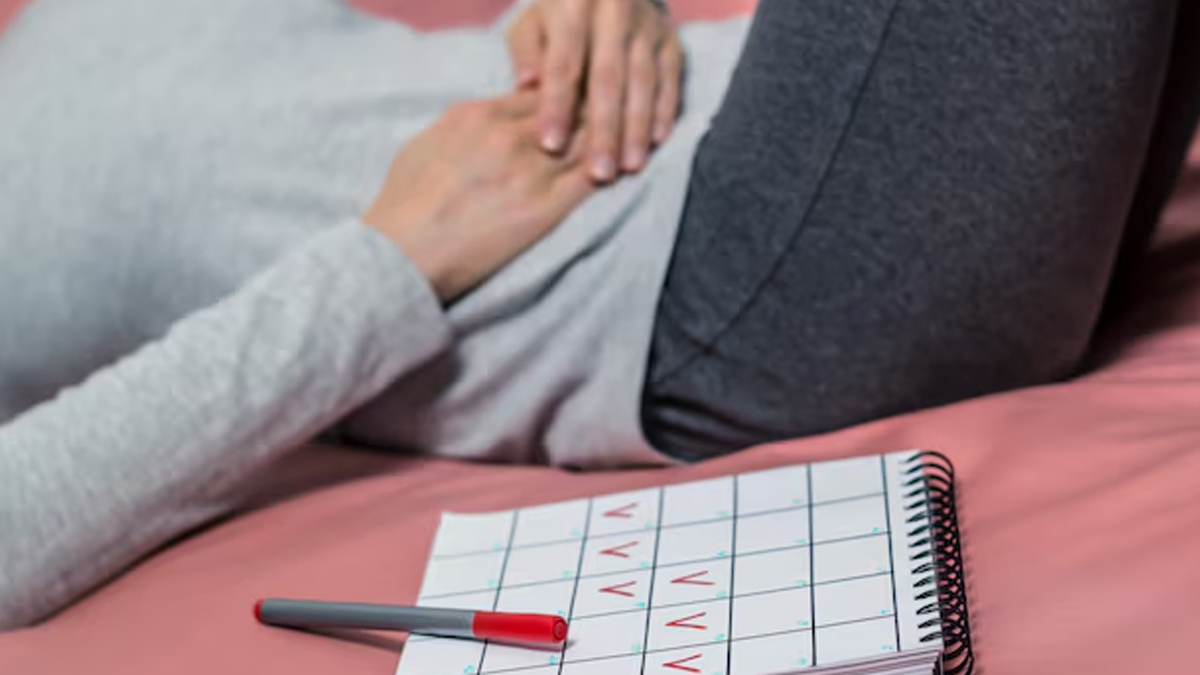
Premenstrual Syndrome (PMS) is a condition that occurs in the days leading up to menstruation. It constitutes a group of physical and psychological symptoms that can vary from person to person. While usually a person experiences breast changes, acne, and digestive issues, some women also complain of feeling sluggish and weighed down, not wanting to do anything.
Table of Content:-
Speaking with the OnlyMyHealth team, Dr Mahua Bhattacharya, Consultant—Gynaecology, Fortis Hospital, Anandapur, discusses the common causes behind this premenstrual fatigue and how one can get rid of it.
Also Read: Expert Shares 6 Vitamins Every Woman Should Have For Hormonal Balance
Why Do Some Women Feel Weighed Down Before Menstruation?

There are several reasons why a woman may feel heavy or weighed down before their period. Dr Bhattacharya shares a list of factors that may be to blame:
- Hormonal changes
- Water retention
- Progesterone levels
- Serotonin levels
- Blood sugar fluctuations
- Digestive changes
- Stress and anxiety
According to StatPearls Publishing, 47.8% of menstruating women experience PMS, of which 20% have symptoms severe enough to disrupt their daily activities, and the remaining have mild to moderate symptoms.
Role Of Hormonal Changes

According to Dr Bhattacharya, hormonal changes throughout the menstrual cycle can contribute to feelings of sluggishness in several ways. After ovulation, progesterone levels rise, which can have a sedative effect on the body, leading to drowsiness and fatigue.
Additionally, oestrogen levels fluctuate, peaking mid-cycle before dropping just before menstruation, which can result in decreased energy and alertness.
The doctor notes that these hormonal shifts can also impact serotonin levels, a neurotransmitter that plays a crucial role in mood regulation, motivation, and overall energy levels, potentially leading to feelings of tiredness or low mood.
Moreover, fluctuations in hormones can influence insulin sensitivity, sometimes causing blood sugar imbalances that lead to sudden energy crashes and fatigue.
These combined effects make it common for individuals to experience sluggishness at different points in their menstrual cycle.
Also Read: Pregnancy Signs That Feel Just Like PMS
On Managing Premenstrual Fatigue
Making dietary and lifestyle changes can help manage fatigue linked to PMS.
Some of the common dietary changes include adding complex carbohydrates like whole grains, fruits, and vegetables that can help stabilise blood sugar levels and provide sustained energy throughout the day; eating protein-rich foods, such as lean meats, fish, and beans, that support energy production and muscle function; and having healthy fats from nuts, seeds, and avocados that also contribute to long-lasting energy and overall well-being.
It is also important to stay hydrated by drinking plenty of water, as dehydration can exacerbate fatigue. Additionally, limiting caffeine and sugar intake can prevent energy crashes, helping maintain consistent energy levels.
In addition to dietary modifications, certain lifestyle changes like engaging in regular exercise, such as yoga, brisk walking, or strength training, ensuring adequate sleep, managing stress through meditation, deep breathing, or journaling, and certain supplements such as omega-3 fatty acids, vitamin B12, and magnesium may further support energy levels and alleviate fatigue.
Treatment Options For Premenstrual Sluggishness

For those experiencing severe PMS symptoms, various treatment options are available. In cases where PMS symptoms significantly impact daily life, certain medications may help:
- Over-the-Counter (OTC) pain relievers for cramps and headaches
- Antihistamines to help with sleep disturbances and anxiety
- Hormonal birth control to regulate hormone fluctuations, reducing the severity of PMS symptoms
- Antidepressants for severe mood-related symptoms
- Anti-anxiety medications to manage PMS-related anxiety and sleep disturbances
Some people can choose alternative approaches to manage PMS symptoms:
- Acupuncture to relieve pain and improve mood
- Herbal supplements like omega-3 fatty acids, vitamin B6, and magnesium to alleviate PMS symptoms
- Heat therapy to help relax muscles and relieve menstrual cramps
Conclusion
Premenstrual fatigue or a feeling of being weighed down before your period is common. While it may resolve on its own as your period nears or during menstruation, the symptom itself can affect daily activities. In such instances, it’s important to rest well, eat healthily, manage stress, and keep yourself active by exercising regularly. If you experience severe complications or painful symptoms, always consult a doctor for the best course of treatment.
Also watch this video
How we keep this article up to date:
We work with experts and keep a close eye on the latest in health and wellness. Whenever there is a new research or helpful information, we update our articles with accurate and useful advice.
Current Version